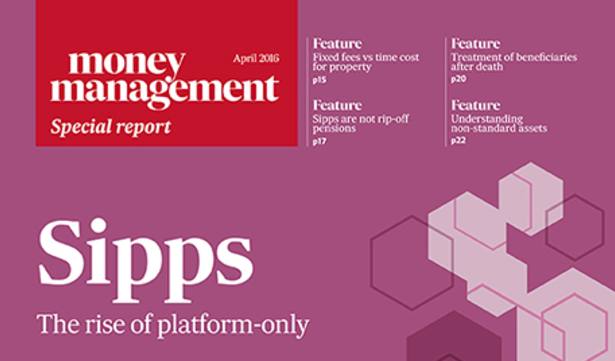The rise of platform-only Sipps has met with much debate.
Greg Kingston, head of marketing and product at Suffolk Life, believes platforms have been the main beneficiaries of the past year’s pension freedoms. “Downward price pressure continues in the platform market though, so one wonders how much of this business will actually be profitable.”
Platform-only Sipps can also be related to offering Sipps direct to consumer, which overall has the industry agreeing that it should not be available. Elaine Turtle, director of DP Pensions and Amps (Association of Member-directed Pension Schemes) committee member, says there is still a large number of people who want the flexibility to run their own Sipp and not have to take advice. “As time goes on and especially as they come to take benefits, they should take advice to ensure they are obtaining the best outcome and not face high tax bills or unintended consequences from their decisions.
“We have seen a number of clients decide to use the Pension Wise service rather than appoint an adviser,” she adds. “If a Sipp is set up for a property purchase then this is usually where an adviser is involved.”
Changing market
Table 6 gives an overview of all providers who returned their surveys looking at each individual plan and detailing how it is classified (independent open architecture, platform-only or DFM), minimum charges and whether a firm has any external assessment or service standard accreditations.
Consolidation has been one of the hot topics since the announcement of capital adequacy. Many have been speculating whether or not smaller providers will sell their books after not being able to afford to continue business. So far, there have been fewer sales than originally expected, but they are still happening. In January this year, Curtis Banks announced the purchase of Suffolk Life for £45m, acquiring around 26,500 Sipps.
Suffolk Life’s Mr Kingston adds, “L&G’s acquisition of Suffolk Life back in 2008 was a signal that larger insurers wanted a piece of a fast-growing Sipp market. Now, eight years on, it is entirely likely that L&G’s decision to exit the full Sipp market (with the sale of Suffolk Life) will signal similar actions from a number of other larger insurers too.”
When it comes to mergers, Hamid Nawaz-Khan, chief executive of Alltrust, believes the FCA has an objective to “push small providers out of the market”, hence the capital adequacy requirement. “The formula has no relation to any of the risks or concerns raised by the FCA for the market and is the most stringent of all operating presently. This has already led to considerable consolidation to the detriment of the market and the consumer, and it pushes out specialist providers like us.”






